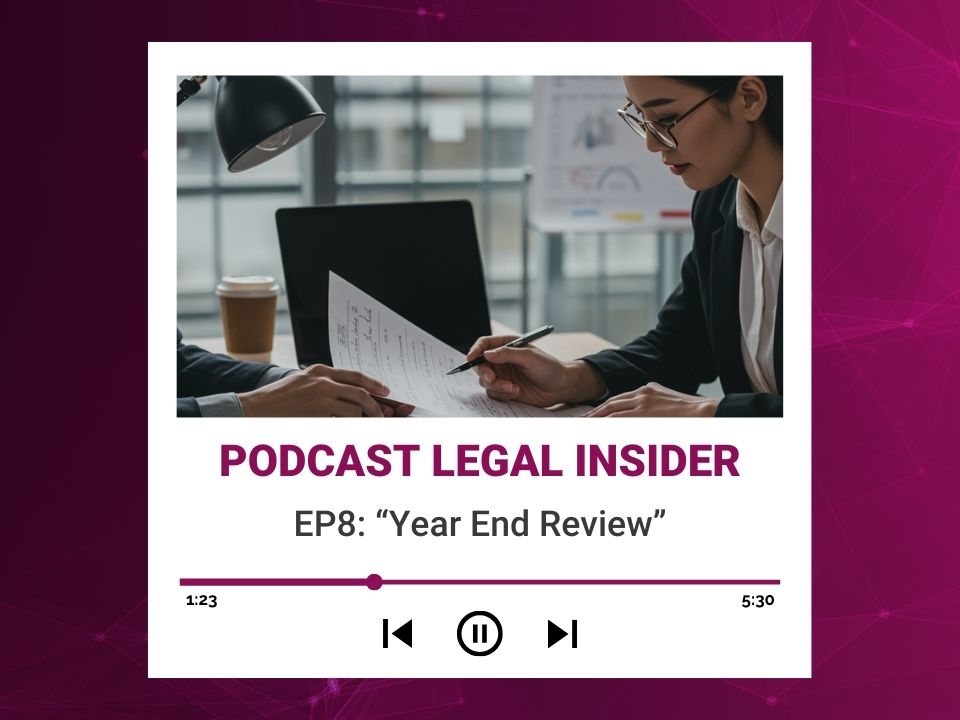Considerations before creating your brand
07/07/2020
Are you getting the corporate support you need?
22/07/2020[vc_row][vc_column][vc_column_text]  By Carlos E. Villalobos Jaén – Associate
By Carlos E. Villalobos Jaén – Associate
The Constitution states in Article 55 the following:
“ARTICLE 55. In the event of a foreign war or internal disturbance that threatens peace and public order, a state of emergency may be declared throughout the Republic or part of it and the effects of Articles 21, 22, 23, 26, 27, 29, 37, 38 and 47 of the Constitution may be temporarily suspended, partially or totally.
The state of emergency and the suspension of the effects of the constitutional norms cited shall be declared by the Executive Branch through a decree agreed upon by the Cabinet Council. The Legislative Branch, by its own right or at the request of the President of the Republic, shall be aware of the declaration of the referred state if it lasts for more than ten days and confirm or revoke, totally or partially, the decisions adopted by the Cabinet Council, related to the state of emergency.
When the cause that motivated the declaration of the state of emergency ceases, the Legislative Body, if it is in session, or, if it is not in session, the Cabinet Council, will lift the state of emergency.
Cabinet Resolution No. 11 of March 13, 2020, entitled: “ THAT DECLARES THE STATE OF NATIONAL EMERGENCY AND DICTATES OTHER PROVISIONS, in which the state of “emergency” is decreed , and then continues, stating that “to allow purchases of up to 50 million dollars…” etc.
URGENCY comes from urge, according to the DRAE, and defines it as follows:
“URGE.
- tr. To ask for or demand something urgently or urgently. The neighbors were urging the construction of a park.
- tr. To lead or push someone to act quickly. The director urged her to finish the report.
- intr. Said of a thing: To urge or require its prompt execution or remedy.
- intr. Said of the law or a precept: “To oblige by urgency.”
On the other hand, EMERGENCY has the following definition:
“Emergency:
Der. del lat. emerging, -being ’emerging’.
- f. Action and effect of emerging.
- f. Event, accident that occurs.
- f. Dangerous or disaster situation that requires immediate action.
- f. Guat., P. Rico, R. Dom. and Ven. emergencies ( ‖ section of hospitals).
of emergency
- loc.adj. That which is carried out or serves to get out of a situation of difficulty or danger. state of emergency ”
Guillermo Cabanellas’ Dictionary of Common Law states that:
“ URGENCY : It is a pressing need, an urgent matter, a current obligation to comply with a law, order or precept.
EMERGENCY : In correct Spanish, this word means occurrence or accident; and the fact of sprouting or coming out of the water; however, due to obvious anglicism, the word has acquired legal meaning for Political Law; and for this reason, the situation of public unrest is sometimes called a state of emergency , which should be qualified, according to the cases, as a state of alarm or state of siege. Emergency measures are also used to refer to provisional provisions in cases of need, urgency or exception .
The legal concept of EMERGENCY, given by Cabanellas, is very close to the factual assumption of URGENCY , as stated in article 55 of the Constitution.
Question: Is the state of “EMERGENCY” declared in the Cabinet resolution the same as the state of “URGENCY” referred to in the Constitution? Or is it up to each person to interpret it as they see fit? Especially the Executive Branch must determine, at its own discretion, what is an “EMERGENCY”.
The concept of “EMERGENCY”, which is used only once in the National Constitution of the Republic of Panama, without establishing what this concept implies, forces us to discover what definition the Law gives it; otherwise we must apply its natural definition (article 10 of the Civil Code). The technical concept (article 11 of the Civil Code), among others, is the one given by Cabanellas:
“EMERGENCY : In correct Spanish, this word means occurrence or accident; and the fact of sprouting or coming out of the water; however, due to obvious anglicism, the word has acquired legal meaning for Political Law; and for this reason, the situation of public unrest is sometimes called a state of emergency , which should be qualified, according to the cases, as a state of alarm or state of siege. Emergency measures are also used to refer to provisional provisions in cases of need, urgency or exception .
Article 10 of the Civil Code states the following:
“The words of the law shall be understood in their natural and obvious sense, according to the general use of the same words; but when the legislator has expressly defined them for certain matters, they shall be given their legal meaning in these cases.”
The National Constitution of Panama uses the word “EMERGENCY” in the following article:
“ ARTICLE 163. The National Assembly is prohibited from :
…
8. Order or authorize other items and programs not provided for in the General State Budget, except in cases of emergency expressly declared by the Executive Branch.
That is to say, the Assembly is prohibited from ordering or authorizing items and programs other than those included in the General Budget, EXCEPT in cases of “EMERGENCY” declared “EXPRESSLY” by the Executive Branch .
So then, what should we understand? That these “EMERGENCY” expenses declared by the Executive Branch must be authorized or ordered by the Assembly? In accordance with the prohibition contained in article 163.
On the other hand, what are those cases of “EMERGENCY” that can be expressly declared by the Executive Branch? Expressly, it is what is express, clear, patent and specified (DRAE). That being so, and public servants being subject to the principle of only being able to do what the Law orders them to do; where do those “EMERGENCY CASES” that the Constitution allows the Executive Branch to declare in such a way appear “expressly” detailed ? Or is that at the free discretion of said Branch?
In any case, the National Constitution of Panama does not establish any definition regarding what is to be understood as “EMERGENCY CASES”, as stated in article 163.
Regarding the concept of “URGENCY” , the National Constitution of the Republic of Panama uses it 7 times, including in article 55 and in the following article:
“ ARTICLE 161. The administrative functions of the National Assembly are:
…
11. Approve, reform or repeal the state of emergency decree and the suspension of constitutional guarantees, in accordance with the provisions of this Constitution.”
The curious thing is that the concept of “URGENCY” does seem to be constitutionally defined, at least in terms of establishing in which cases it should be understood that there is a “STATE OF EMERGENCY” , as stated in Article 55 of the Constitution when it states that: “ In the event of a foreign war or internal disturbance that threatens peace and public order , the entire Republic may be declared in a state of emergency.”
As we indicated before, this constitutional definition of “URGENCY” is very close to the doctrinal concept of “EMERGENCY” given by the Cabanellas Dictionary of Usual Law .
The Judicial Code uses in its articles the concept of “URGENCY” not “EMERGENCY” , and among the norms that contain it is article 1927, when referring to Expropriation in Cases of Urgency , whose express text is the following:
“ Article 1927. In cases of war, serious disturbance of public order or urgent social interest requiring rapid measures in accordance with Article 47 of the Political Constitution, the rules detailed in the following articles shall be followed.”
The Judicial Code takes from the Constitution the constitutional definition of “URGENCY” given in Article 51 (previously 47) of the National Constitution. The article contains the following text:
“ARTICLE 51. In case of war, serious disturbance of public order or urgent social interest , requiring rapid measures , the Executive may decree the expropriation or occupation of private property.
When it is feasible to return the occupied object, the occupation will only last for the duration of the circumstances that caused it.
The State is always responsible for any expropriation carried out by the Executive and for the damages and losses caused by the occupation, and will pay their value when the determining reason for the expropriation or occupation has ceased.”
In this case, we are also talking about “ URGENT social interest” and not “ EMERGENCY social interest ”. There, urgent matters are equated with the case of war and the case of serious disturbance of public order. According to article 51, the “URGENCY” measures that the executive can take are to decree the expropriation or occupation of private property. Nothing else.
This is what the Supreme Court of Justice has said, referring to the concept of “ URGENCY” and not “EMERGENCY”, this in regards to cases of expropriation exclusively:
“ In the case of urgent or extraordinary expropriation, as the word itself indicates, the measure is adopted urgently and unilaterally by the Executive, who occupies the property immediately , invoking for this reason reasons of war, serious disturbance of public order or urgent social interest; only after the determining reason for the expropriation has ceased, it proceeds to compensate the owner of the property for the damages and losses caused, based on the amount determined by the competent judge. To do so, it must comply with the procedure provided for in articles 1951 to 1955 of the Judicial Code, that is, promote the process before the competent Judge, who will order the missing evidence, proceed to appraise the property and then resolve – according to article 1952 – “within the following two days, on the expropriation, without hearing the defendant.” It is in this last point where the process provided for in Chapter II of Title XVI, Part II of Book II of the Judicial Code violates the Constitution.
Article 47 of our Fundamental Charter clearly states that it is the Executive who, on an urgent basis , decrees the expropriation of property in the event of war, serious disturbance of public order and urgent social interest and only after said reasons have ceased, that is, when the urgency has disappeared , will it be held responsible for the damages and losses thus caused. This means that, when the State initiates the process before the Judge, the urgency has disappeared and there is no reason for the latter to resolve “within the following two days” and much less “on the expropriation,” which has already been decreed and verified by the Executive. Worse still, it decides “without hearing the defendant,” thus denying him the opportunity to exercise his right of defense and violating the contradictory without any reason. ( COMPLAINT OF UNCONSTITUTIONALITY PROPOSED IN HIS OWN NAME BY LIC. DIENER VINDA, AGAINST THE PHRASE “WITHOUT HEARING THE DEFENDANT” CONTAINED IN ARTICLE 1952 OF THE JUDICIAL CODE. REPORTING MAGISTRATE: HUMBERTO A. COLLADO T. PANAMA, EIGHTEEN (18) JANUARY, TWO THOUSAND (2000). SUPREME COURT OF JUSTICE. PLENARY.”
Let us look at a concept of emergency given in the Law, specifically number 120 of December 19, 2019, which creates the National Emergency System, Nine-one-one (9-1-1) and modifies Law 44 of 2007, relating to SUME and dictates other provisions. Article 2 of said Law establishes the following:
For the purposes of this Law, the following terms shall be understood as follows:
- Emergency . Any circumstance that may compromise the life, liberty, integrity and security of persons, property and the environment and that requires immediate assistance from one of the institutions that make up the system governed by this Law or the joint coordination of them.
This definition, as stated in the law, applies to the effects of said law, 120, and not to other cases established in other regulations. In any case, we must adhere to the interpretation formula established in articles 10, 11, 12 and 13 of the Civil Code. Therefore, we believe that this definition is restrictive to the area it regulates.
It would be worth assuming that the emergency cases referred to in Article 163 of the National Constitution are those referred to in Article 2 of the “911” Law? The budgets indicated in the Public Procurement Law are not covered by these “911” cases either, or are they?
Law 22 of 2006 on Public Procurement establishes the following in Article 79:
“ Article 79. Special procedure for emergency procurement. When the Cabinet Council DECLARES an EMERGENCY, state entities may contract the acquisition of goods, services or works through the special procedure.
The cabinet resolution declaring a STATE OF EMERGENCY and authorizing contracting through the special procurement procedure must indicate the total amount authorized for special contracts and the period within which such contracts may be made.
The special emergency procurement procedure may be used until the authorized sum is reached in total and within the specified period.
In EMERGENCY CASES where it is necessary to purchase water and food for immediate consumption, the presentation of a bond will not be required; however, the contractor must guarantee the contracting entity through the contract its obligation to respond for defects in the acquired goods. Likewise, the contract must establish that the contractor’s payment will be made after the execution of the object of the contract.
If goods are required that cannot be supplied in the local market, entities are authorized to acquire them from companies or nationals, although they are required to register a posteriori in the Proponent Registry of the electronic Public Procurement System “Panama Compra”.
Once the term indicated in the cabinet resolution that DECLARED THE EMERGENCY has concluded , the contracting entities will present to the Cabinet Council a detailed report of the concessions made. Said report will be published in the Electronic Public Procurement System “Panama Compras”, no later than five business days after the presentation to the Cabinet Council.
If not all of the acquired goods have been consumed or used, the remainder must be made available to the National Civil Protection System of the Ministry of Government or the Social Assistance Directorate of the Ministry of the Presidency.
Entities must consult the Electronic Catalogue of Products and Services before availing themselves of this special procedure and verify whether or not the products or services required to deal with the emergency are included in said catalogue.”
The interesting thing about this rule is that it states that when the executive branch “ DECLARES an EMERGENCY” , but which emergency? The one referred to in Article 163 of the National Constitution, without defining what an EMERGENCY is ? Then it would only be enough for the Executive Branch to decree or declare an “ EMERGENCY” to proceed to establish “special” contracts of fifty million (US$ 50,000,000.00), or more if it so desires?
I am not referring to the power of the executive to declare “EMERGENCY CASES” , as the Constitution seems to allow, exclusively for the provisions of article 163 of ordinal 8, with the supervision of the National Assembly, it seems to me, but to which cases we should understand as “EMERGENCY CASES” , different from those of ” URGENCY”, which the Constitution does establish in which cases should occur.
According to Article 200 of the Political Constitution of the Republic of Panama, it is the responsibility of the Cabinet Council to declare a “State of Urgency” and not an “emergency” . This is expressly stated:
“ARTICLE 200. The functions of the Cabinet Council are:
…
5. To declare, under the collective responsibility of all its members, a state of emergency and the suspension of the relevant constitutional norms, in accordance with the provisions of Article 55 of this Constitution.”
The Cabinet Council may then declare a state of “emergency” , in accordance with the provisions of Article 55 of the Constitution. This norm does not say “emergency” , a concept that is used in Article 163 of the Magna Carta, in an indefinite constitutional way.
I do not believe that “STATE OF EMERGENCY” or “EMERGENCY CASES” , a concept whose definition is not found in the National Constitution, nor is it clearly defined in the Law, can be left to the discretion of the Executive Branch to determine, since from its exclusive point of view, everything can be an emergency.
I bring as a reference, as a summary of the previous analysis, what was pointed out by Doctor Cesar Quintero in his Book Constitutional Law (page 585), referring to ordinal 8 of article 121 of the Constitution of 1946. This is how Doctor Quintero expressed himself:
“7. Ordinal 8° (Order Public Works) – Ordinal 8° of article 121 prohibits the Assembly
“Order and authorize public works other than those decreed in the Law referred to in ordinal 16 of article 118, except in cases of emergency expressly declared by the Assembly.”
The aforementioned ordinal 16 of article 118 is the one that assigned the Assembly the function of approving, with or without modifications, the bill on public works presented by the Executive. And ordinal 5 of 144 provides that the Executive must send to the Assembly, within the first ten days of its sessions, the public works plan for the following fiscal year.
According to this prohibition, the Assembly cannot order or authorize public works on its own. It must adhere to the public works plan that the Executive presents to it each year.
The prohibition is well-founded and fully justified . The initiative in this matter lies and must lie with the Executive. In the modern State, the construction of any public works must follow a rational and comprehensive plan. And any planning of this nature would collapse if the deputies could propose at will and the Assembly could authorize the construction of public works without any order or concert.
However, the effectiveness of this prohibition is greatly diminished by the exception it contains. It is enough for the Assembly to declare that the construction of any work is a case of “emergency” in order to order or authorize it. In this way, the public works plan is distorted and ruined. The Deputy interested in having a chapel or a barracks built in a district that suits him, only has to obtain – in exchange for reciprocity – that his colleagues declare the corresponding construction an emergency case. If the key term were understood and interpreted in a strict sense, the Assembly is the least indicated body to act in true cases of emergency . To deal with these, the most suitable body is the Executive. And if the delegation of functions to it has any justification, it is precisely due to the so-called cases of emergency.
Having read what Dr. Quintero has stated, and if the criticism he makes of the Assembly at that time (Edition of the book in 1967) is valid, it is not possible to allow ourselves, for our times, subjected to this institutional crisis, to doubt that it is only the Executive Branch that determines what the “EMERGENCY CASES” are , a concept not defined in the National Constitution .
This is a question of whether or not we trust our authorities. It is one thing to want to do something, and another to know whether you can and should do it.
Article 18 of the Political Constitution of the Republic of Panama states:
“ARTICLE 18. Individuals are only responsible before the authorities for violations of the Constitution or the Law. Public servants are responsible for these same causes and also for overstepping their functions or for omission in the exercise of these.”
It is undeniable that a solution is “urgently needed” for the COVID “emergency”, the question is who controls the expenses for the solution, the Executive Branch exclusively, with the sole expression of “EMERGENCY” ?
[/vc_column_text][/vc_column][/vc_row]







